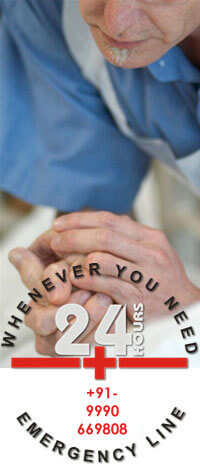Restaurant First Aid Training Centre Delhi
Cooking Up Some Safety
Kids always like to help around the house when they're little. Of course, as they get into their teens the feeling passes. Sometimes their desire to help just slows things down as you try to make sure they don't injure themselves. If each kid has a clear understanding of his or her role, tasks in the kitchen can get done quicker and you may even find yourself appreciating the help.
If you wonder what your child could reasonably be expected to do, follow these guidelines from Safe Kids Worldwide and the National Fire Protection Association.
Children between 3-5 years of age:
- Get ingredients out of the refrigerator and cupboards.
- Stir ingredients together in a bowl.
- Pour cool liquids into a bowl.
- Rinse foods under cold water.
- Use a cookie cutter to cut out shapes in dough.
Children between 6-8 years:
- Use a butter knife to spread frosting, peanut butter or soft cheese.
- Measure ingredients.
- Set the table.
Children between 9-11 year:
- Begin to follow recipes.
- Help plan the meals.
- Use electrical kitchen appliances such as blenders, food processors, electric mixers and microwaves.
- Open cans.
- Squeeze garlic from a garlic press and use a grater to shred cheese and vegetables.
- Turn stove burners on and off and select oven temperature when an adult is present.
Children above age 13:
- Operate the stovetop without adult supervision.
- Drain cooked pasta into a colander.
- Remove a tray of cookies from the oven.
- Heat food in the microwave without adult supervision.
These tips help you choose what kids can do around the kitchen, but if they're going to be there as you cook then there are certain precautions
you should take. The most common cause of house fires is cooking, and the most common cause of burns in kids under 3 come from scalding hot liquids or hot surfaces. Following these tips from the National Fire Protection Agency and the U.S. Fire Administration will help you avoid turning a night together around the dinner table into a stay at the hospital.
- Always stay in the kitchen when you are cooking.
- Stay alert. Don’t cook if you are sleepy, have been drinking alcohol or have taken medicine that makes you drowsy.
- If you must leave the home for even a short period of time, turn off the stove or oven.
- Keep young children at least 3 feet (1 meter) away from any place where hot food or drink is being prepared or carried.
- Never hold a small child while cooking.
- Keep hot foods and liquids away from table and counter edges.
- Secure table cloths to keep kids from pulling items off tables.
- Always turn pot holders inward.
- Use the stove's back burners whenever possible.
- Never hold a child while cooking or carrying hot foods or liquids.
- Keep appliance cords coiled and away from counter edges.
- Don't use extension cords with cooking appliances.
- Use oven mitts or potholders when moving hot food from ovens, microwave ovens, or stovetops. Never use wet oven mitts or potholders as they can cause scald burns.
- Replace old or worn oven mitts.
- Keep things that burn -- pot holders, oven mitts, paper or plastic -- off your stovetop.
- Don’t store things that can burn in an oven, microwave, or toaster oven.
- Clean food and grease off burners, stovetops and ovens.
- Wear clothing with sleeves that are short, close fitting, or tightly rolled up.


































